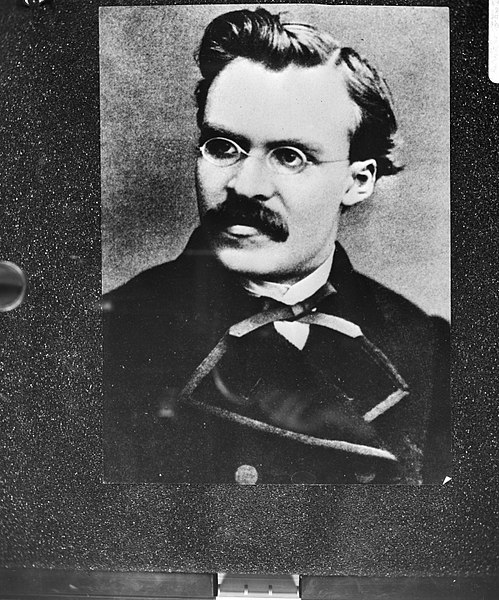Reading time: 7 minutes
ETHICS EXPLAINED – PART 1

THINGS TO KNOW The second Kantian question has also led to discussions between utilitarians, discourse ethicists and followers of Kant: What should I do? We humans need moral principles in order to be able to react quickly and well in certain situations.
According to Gilbert Harman (1938 – present), there is no universal moral principle that works in the same way for every situation. Thus, if two principles of action contradict each other, one of them does not have to be wrong. But which fundamental principles actually exist and which of them is best? In the following, I would like to introduce deontological (Kant) and teleological ethics (utilitarianism) and discuss moral values in general.
Immanuel Kant: from the good will to the categorical imperative
Immanuel Kant (1724 – 1804) advocated a deontological ethics (ethics of duty), i.e. for him only the good/moral intention counted at first, while the consequences of an action were rather secondary. He described good reasons as objective and reasonable: all inclinations were outside and one acted out of duty* without a specific purpose. Thus, if all accept the reasons for action as good and valid without exception, then a good will and a moral action arise.

Source: https://commons.wikimedia.org/
wiki/File:Immanuel_Kant_001.jpg
*For Kant, duty was the necessity of an action out of respect for the moral law (through inner conformity to moral laws).
Example: I drive 30 km/h in front of the school because there is a 30 km/h sign and I know that there is a speed camera behind it – would be acting out of self-interest. I drive 30 km/h in front of the school because I thus guarantee the safety of the schoolchildren – would be acting out of duty.
Kant believed in the autonomy of the human will and thus founded human dignity. This freedom was the origin of morality and ethics, and for this reason alone we could establish laws and obey them by virtue of our reason. We are able to establish laws as subjective principles of action (maxims). And with these self-discovered, verified maxims, we participate in universal, objective principles.
The most important objective principle developed by Kant in this context is the Categorical Imperative: “Act only according to that maxim by which you can at the same time will that it become a general law.” It is a moral instruction for action that always applies to every person without any conditions (therefore: categorical -> the opposite would be the hypothetical imperative) and basically consists of four steps:
- formulating action: “I want to cheat in the ethics test.”
- maximisation: “Cheating in tests is not reprehensible.”
- generalisation: “Everyone must cheat in every test.”
- maxim testing: “This is how tests lose their meaning. -> The maxim is self-contradictory. -> The action is morally wrong.”
There are other formulations of this moral principle, such as the humanity-purpose formula, which is based on human dignity: “Act in such a way that you use humanity, both in your person and in the person of everyone else, at all times both as an end and never merely as a means.”

The Categorical Imperative has been criticised, among other things, for the fact that the moral intention is not always verifiable, that it is virtually an empty formula and that no moral motivation is necessary.
If one makes a comparison with the Golden Rule, it can be seen that both prescribe moral meta-rules without concrete content; however, the Golden Rule subjectively judges the consequences of the action as a prohibition and brings with it a certain expectation (my view is imposed on others), whereas the imperative objectively judges the intention of the action and pronounces a commandment.
Utilitarianism: utilitarian principle
Utilitarianism is a teleological ethics (ethics of purpose) and is oriented towards weighing the consequences. It decides according to the greatest possible happiness for the greatest possible (not absolute) number of people affected. A utilitarian thus always looks for the action whose consequences are optimal for the well-being (of the majority) of all those affected; he or she is guided by luck as a real, human goal.

Source: https://commons.wikimedia.org/wiki/
File:Portrait_of_Jeremy_Bentham_Wellcome
_M0016939.jpg
Disadvantages are, of course, the unhappiness of the minority, but also that immoral principles can be legalised by a majority. For example, good consequences (such as the possible wealth for the general public) could justify a war. Moreover, the consequences are by no means always foreseeable.
Example: If one had to let a sick person die in order to save the lives of ten others who would otherwise die in any case, a utilitarian would not hesitate long and kill the one person. The problem with this is that even if the one person were healthy and could actually survive, the utilitarian would kill him for the benefit of the majority – which is tantamount to condoning murder.
Utilitarianism is divided into different sub-types. One of these is the quantitative utilitarianism of Jeremy Bentham (1748 – 1832). It puts all human pleasures on the same level, so that they are worth the same amount. Criticism comes from John Stuart Mill (1806 – 1873) with his qualitative utilitarianism. Sensual pleasures should not be considered a goal of action; they would have a lower value than, for example, spiritual pleasures. Therefore, according to Mill, one should orient one’s actions towards pleasures of a higher quality. This in turn, it can be criticised, would mean that the educated, who have higher standards of happiness, would determine pleasures. Further subtypes are:
- preference utilitarianism (Peter Singer): decision according to preferences of all concerned who are aware of themselves, i.e. the opinion of an ape can be worth more than that of a handicapped child
- rule utilitarianism (John Stuart Mill): classification of the action into a type of action and decision according to a general rule/a moral code (but: no progress)
- action utilitarianism (Jeremy Bentham): weighing up the possible consequences of a concrete individual action
The model of moral stages by Lawrence Kohlberg (1927 – 1987)
Which of the two moral principles we tend towards (or whether we identify more with discourse ethics or still other principles) depends on where and in what environment we grow up and how old we are – at least this is Kohlberg’s theory in his moral stages model, which I have tabulated below. It says that our moral thinking always develops in the course of our lives, on 3 levels in 6 stages:
| pre-conventional (reaction to good/bad) | orientation towards punishment and obedience (1) | material consequences decide, no values (How can I avoid punishment?) |
| instrumental-relativistic orientation (2) | instrumental satisfaction (of self or others) -> material interpretation of values (What’s in it for me?) | |
| conventional (effort to fulfil | achieve interpersonal harmony (3) | intention finds approval with others (What do others think of me?) |
| orders and expectations) | law and order (4) | duties, respect for authority and social order (How can I maintain law and order?) |
| post-conventional (finding own values) | legalistic social contract order (5) | general individual rights and standards -> questioning the content and finding consensus if necessary (Does a rule really serve all members of society?) |
| universal ethical principles (6) | decisions of conscience of the impartial, reasonable observer according to self-selected principles (what values constitute justice for me?) |
Criticism of the model was voiced by Otfried Höffe (1943 – today), among others:
- for utilitarians 5th level is sufficient, discourse ethicists demand 7th level
- with 6th level own interests would always be in the background
- not everyone reaches 5th/6th level
- different cultures: autonomy (6th level) is not always desirable
Monika Keller takes a more positive view of these moral levels. She says that a change of perspective between the levels can help in conflicts of different moral obligations to find a just solution. Moreover, with the 6 levels, one is increasingly able to recognise the complexity of moral problems and to form one’s own “moral self“.
According to Nico Scarano (1965 – today), reasons for moral action can be classified as externalism and internalism. In externalism, extra-moral sources of motivation (such as sanctions, reward/recognition, feelings such as pity) are necessary, while in internalism moral reasons are intrinsically motivating because the connection between the moral reasons and the motives for action has been recognised.
Nietzsche: “Moral principles are nihilistic!”

Source: https://commons.wikimedia.org/wiki
/File:Friederich_Nietzsche_(Duits_filosoof_1844-1900)_kop_1867,_Bestanddeelnr_928-2151.jpg
The German philosopher Friedrich Nietzsche (1844 – 1900) held a very different opinion. He called the morality underlying Western culture “nihilistic” (worth nothing) and considered it an “assurance of life” to be honest with oneself and to doubt all principles as well as to deny present morality altogether. Nietzsche thought nothing of a virtuous (Apollonian) life, instead living intoxicatingly (Dionysian). However, he was not a nihilist who rejected morality in principle.
According to him, man was “beyond good and evil” and incapable of moral decisions. Nevertheless, he said, human moral needs existed through the pursuit of norms and regularity. He calls moralists “peasants of the spirit”. They would have the will to harvest something moral, which eventually loses fertility anyway (values change).

Nietzsche distinguishes between a master morality and a slave morality. To the master morality belong those few people who act bravely, powerfully, efficiently, freely and ruthlessly. People of the slave morality, on the other hand, are weak, cowardly, virtuous, compassionate and submissive. They have set up the unnatural morality in force today – which will ultimately lead to the stagnation of society and the disintegration of humanity.
Man should take off his moral straitjacket and live only according to his own spirit (-> revaluation of all values), thus a functioning society needs both the “masters” (cf. “superman”) and the “slaves” (cf. “herd people”). They are mutually dependent, for it is not in the nature of man for all to be equal.
He also depicts this development in his parable “Of the Three Transformations” (of the spirit): At first, man is a camel (distinguished by faith, humility, simplicity, charity), this soon transforms into a lion (which stands for freedom and self-determination and a no to morality) and finally into a child (this is innocent, can forget and start anew, establish new values). So it’s a process: endure – break out – start over.
Now you can ask yourself: If you could set up a completely new system of norms, which moral principle would you follow? Or can you think of completely new values?

